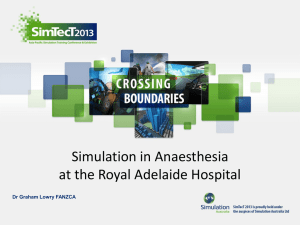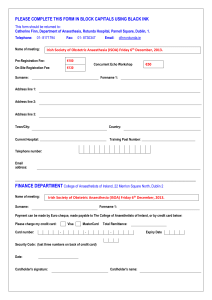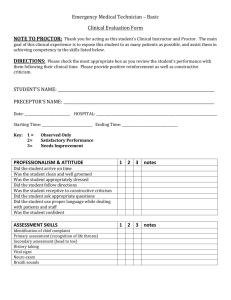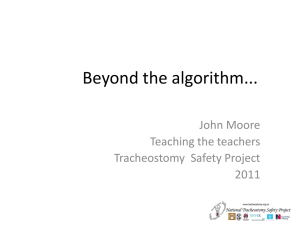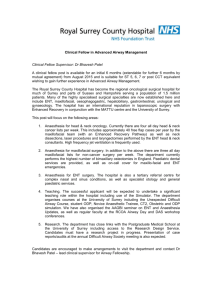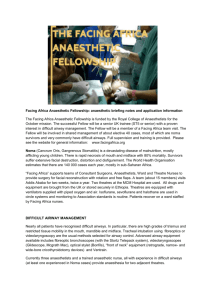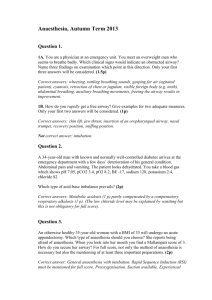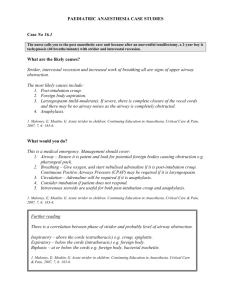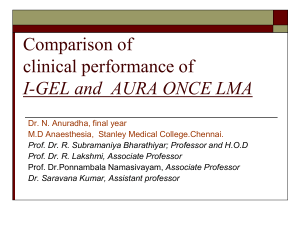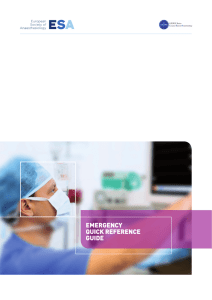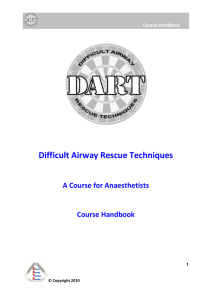CITATION for Dr ARCHIBALD BRAIN. Dr Brain has contributed one
advertisement
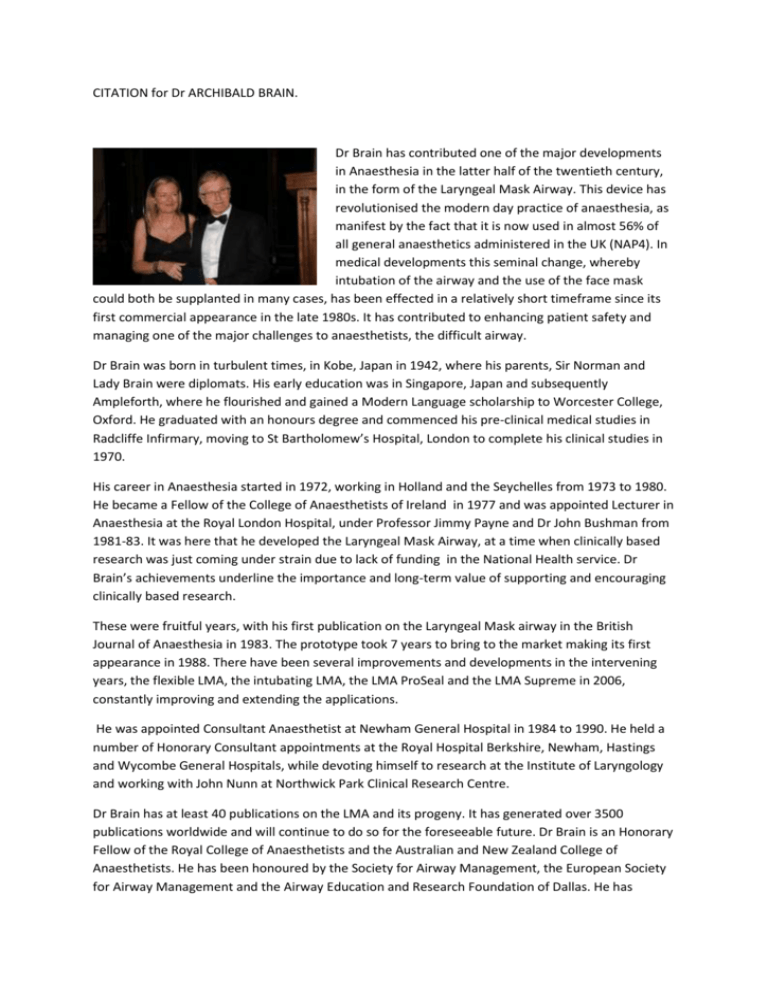
CITATION for Dr ARCHIBALD BRAIN. Dr Brain has contributed one of the major developments in Anaesthesia in the latter half of the twentieth century, in the form of the Laryngeal Mask Airway. This device has revolutionised the modern day practice of anaesthesia, as manifest by the fact that it is now used in almost 56% of all general anaesthetics administered in the UK (NAP4). In medical developments this seminal change, whereby intubation of the airway and the use of the face mask could both be supplanted in many cases, has been effected in a relatively short timeframe since its first commercial appearance in the late 1980s. It has contributed to enhancing patient safety and managing one of the major challenges to anaesthetists, the difficult airway. Dr Brain was born in turbulent times, in Kobe, Japan in 1942, where his parents, Sir Norman and Lady Brain were diplomats. His early education was in Singapore, Japan and subsequently Ampleforth, where he flourished and gained a Modern Language scholarship to Worcester College, Oxford. He graduated with an honours degree and commenced his pre-clinical medical studies in Radcliffe Infirmary, moving to St Bartholomew’s Hospital, London to complete his clinical studies in 1970. His career in Anaesthesia started in 1972, working in Holland and the Seychelles from 1973 to 1980. He became a Fellow of the College of Anaesthetists of Ireland in 1977 and was appointed Lecturer in Anaesthesia at the Royal London Hospital, under Professor Jimmy Payne and Dr John Bushman from 1981-83. It was here that he developed the Laryngeal Mask Airway, at a time when clinically based research was just coming under strain due to lack of funding in the National Health service. Dr Brain’s achievements underline the importance and long-term value of supporting and encouraging clinically based research. These were fruitful years, with his first publication on the Laryngeal Mask airway in the British Journal of Anaesthesia in 1983. The prototype took 7 years to bring to the market making its first appearance in 1988. There have been several improvements and developments in the intervening years, the flexible LMA, the intubating LMA, the LMA ProSeal and the LMA Supreme in 2006, constantly improving and extending the applications. He was appointed Consultant Anaesthetist at Newham General Hospital in 1984 to 1990. He held a number of Honorary Consultant appointments at the Royal Hospital Berkshire, Newham, Hastings and Wycombe General Hospitals, while devoting himself to research at the Institute of Laryngology and working with John Nunn at Northwick Park Clinical Research Centre. Dr Brain has at least 40 publications on the LMA and its progeny. It has generated over 3500 publications worldwide and will continue to do so for the foreseeable future. Dr Brain is an Honorary Fellow of the Royal College of Anaesthetists and the Australian and New Zealand College of Anaesthetists. He has been honoured by the Society for Airway Management, the European Society for Airway Management and the Airway Education and Research Foundation of Dallas. He has received well-deserved prestigious awards from many organisations including the College of Anaesthetists of Ireland, Association of Anaesthetists of Great Britain and Ireland, the RCOA, the Royal Society of Medicine, the Apothecaries Society and Manchester Medical Society. In 2007 he received the Public Interest in Anesthesiology Award from the American Council for Public Interest in Anesthesiology and a Lifetime Achievement Award from Medical Futures Innovations. Dr Brain has also maintained his interest in linguistics, speaking several languages and, like many talented medical graduates, music. Although no longer in clinical practice he continues to research and develop the LMA and is a much sought-after speaker internationally, where he continues to contribute to many meetings from his homes in Brussels and the Seychelles. Anaesthesia is fortunate that when two career options arose he chose medicine over music. At present he might be described as attempting to retire from medicine to allow him to focus on further developing his musical interests. He has played guitar since his teens and is now more interested in composing and building experimental violins. Whatever he does he is a true Renaissance man and original thinker. It is a pleasure for the Difficult Airway Society to confer the Macewen Medal on a man who has contributed so much to anaesthesia and in particular in the area of airway management and consequently to improved patient safety. Ellen O’Sullivan. President Difficult Airway Society.
